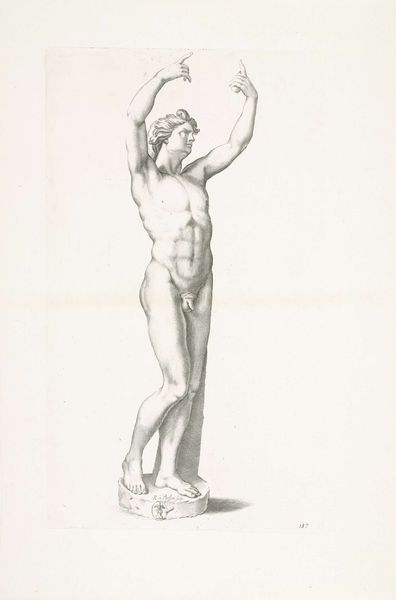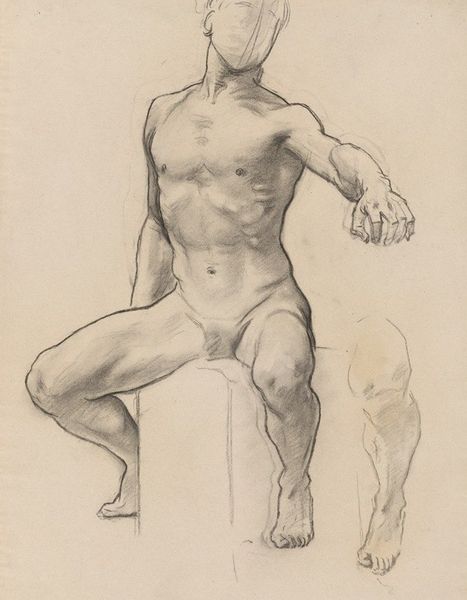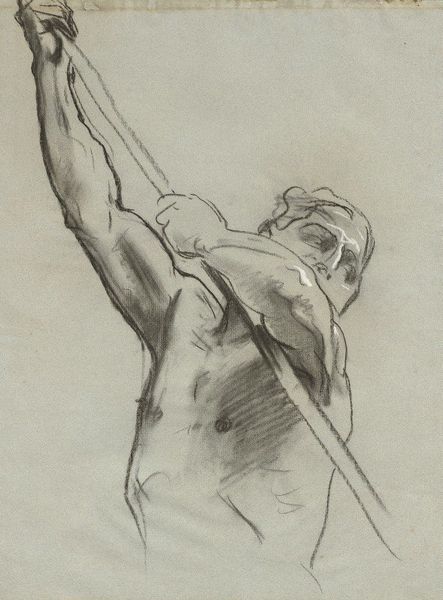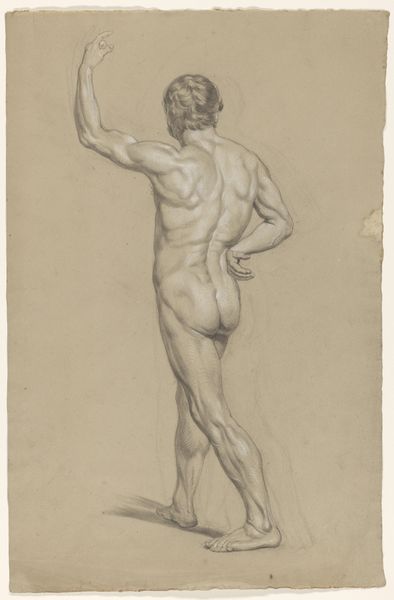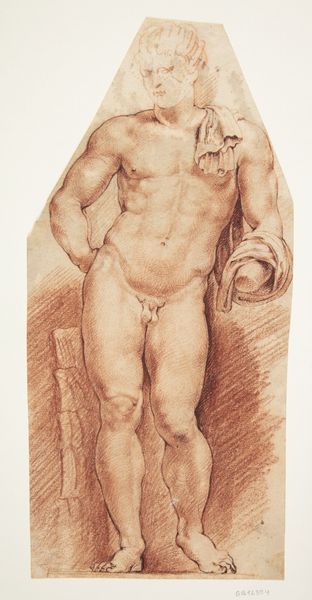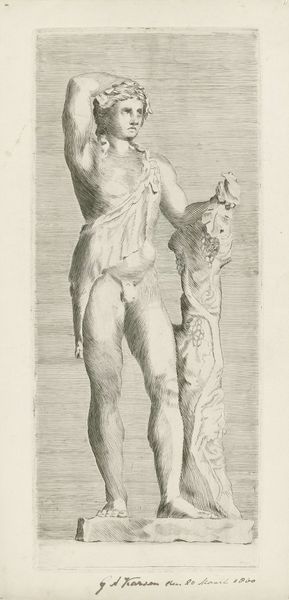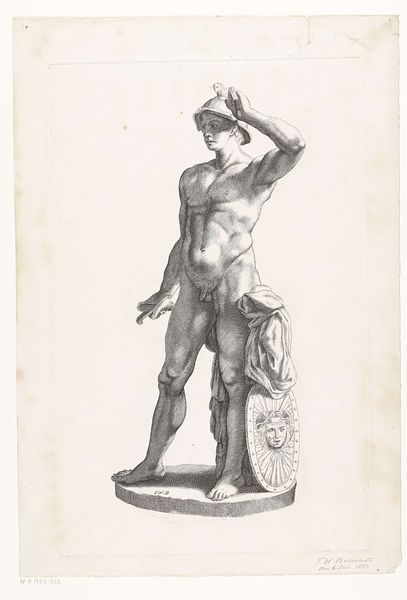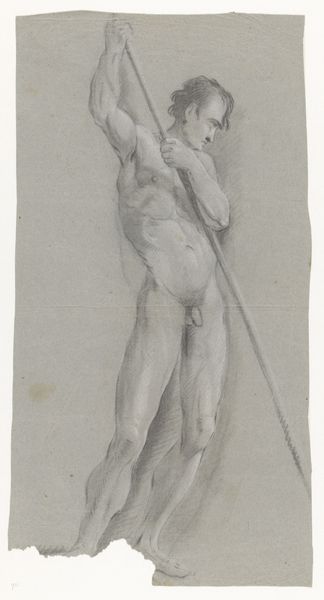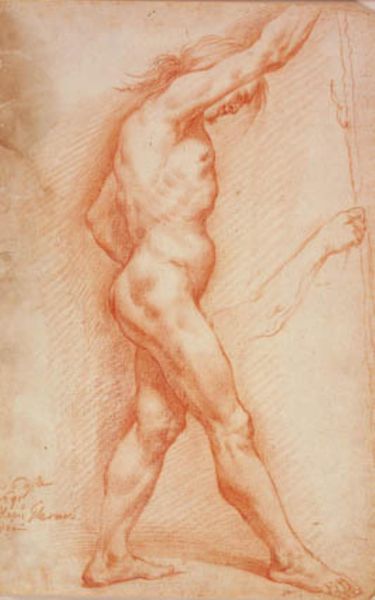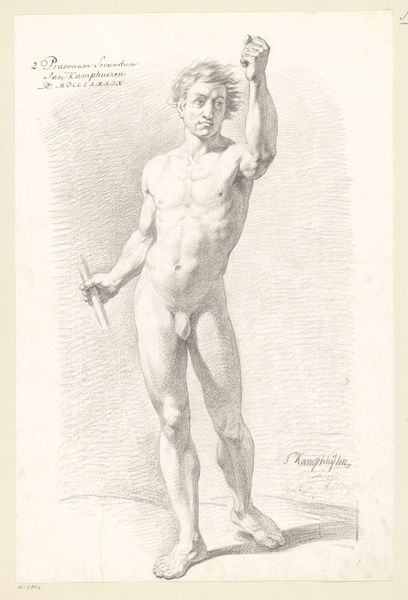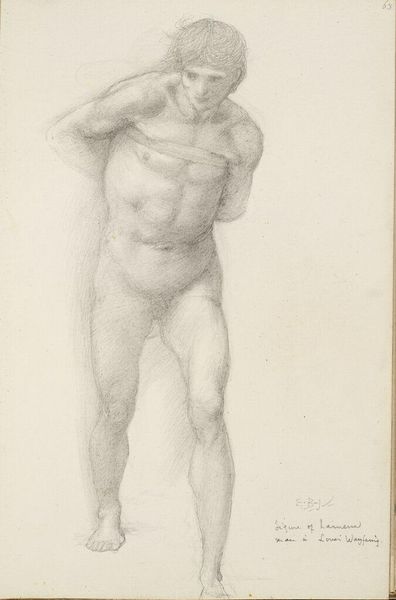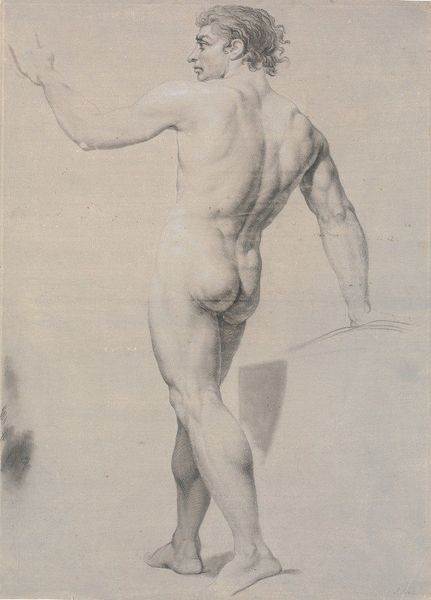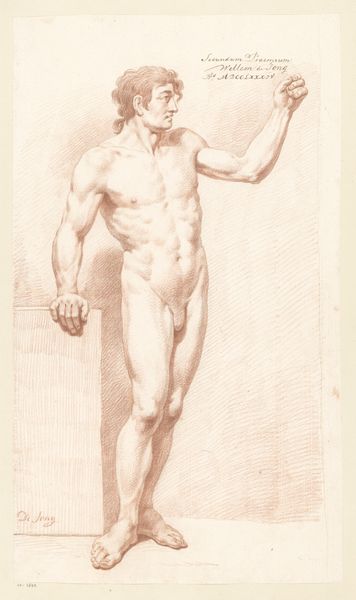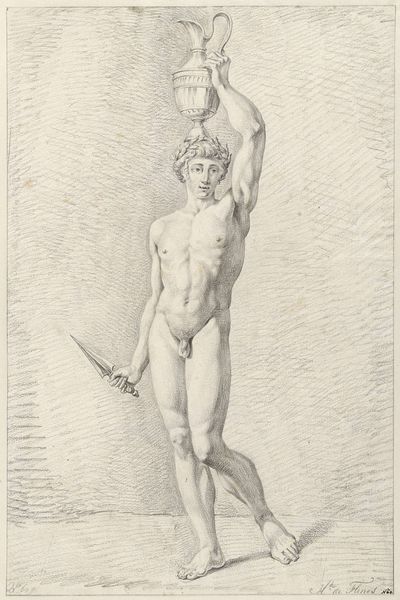
drawing, pencil, engraving
#
pencil drawn
#
drawing
#
baroque
#
pencil sketch
#
charcoal drawing
#
figuration
#
pencil drawing
#
pencil
#
portrait drawing
#
history-painting
#
academic-art
#
nude
#
engraving
Dimensions: height 366 mm, width 235 mm
Copyright: Rijks Museum: Open Domain
This is Reinier van Persijn's engraving of the statue of Mercury. The god is readily identifiable by his caduceus, winged petasos, and purse, all symbols that were already old when the artist put burin to plate. The caduceus, entwined with serpents, and the purse, emblems of trade, reflect Mercury's role as a messenger and patron of commerce, but it is the winged petasos, the symbol of speed and flight, that perhaps most powerfully captures our imagination. Consider how the image of winged figures has persisted and evolved. From the winged gods and goddesses of antiquity to the angels of Christianity and the Valkyries of Norse mythology, these figures embody humanity's age-old dream of transcending earthly limitations. The very act of depicting wings, regardless of the context, taps into a deep-seated psychological desire for freedom, escape, and connection to higher realms, a potent and enduring symbol of human aspiration. These symbols are not static; they are constantly in flux, adapting to new cultural contexts and absorbing new layers of meaning.
Comments
No comments
Be the first to comment and join the conversation on the ultimate creative platform.
